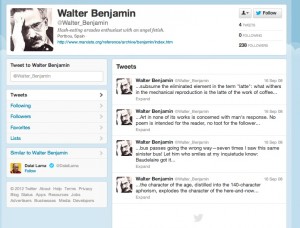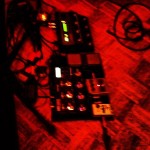Jan 3, 2013 Comments Off on The Bad News
The Bad News
The Finnish eco-fascist Pennti Linkola once said that, “The most central and irrational faith among people is the faith in technology and economical growth.”
Along the same lines, he also opined, “”Any dictatorship would be better than modern democracy. There cannot be so incompetent [a] dictator, that he would show more stupidity than a majority of the people. [The] best dictatorship would be one where lots of heads would roll and government would prevent any economical growth.”
While I’m on the fence about the rolling heads, I share Linkola’s skepticism around growth and have always wondered why anyone would advocate bringing the “American Dream,” for example, to the whole world when, just from a resource allocation perspective, we could not have even half of the Earth’s current population living the way Americans, who represent about 4% of the Earth’s population, do.
Turns out the skepticism is justified and there are mounting problems with the faith harbored by politicians and economists, a faith most visibly at work in the notion that our debt woes will be brought in hand as soon as our economy “starts growing again” or “returns to the growth we saw X years ago.”
The bad news is that the growth the West in particular has enjoyed for the last 200+ years may be an historical anomaly and a chapter in human history gradually, and even precipitously, drawing to a close. If I follow the arguments of the doomsayers, the idea is that said growth, especially in the US, arose out of the confluence of a large, undeveloped (albeit indigenously inhabited) continent ripe for the plucking by the technologically advanced hand of Europe, ongoing technical innovation, and cheap energy (in the form of oil).
The continent having been plucked, technical innovation now tending to increase productivity while decreasing employment, and cheap oil peaked or peaking, the drivers of growth are on the ropes.
And that means things are probably going to get grim (or grimmer, depending on where you are at now).
If you want to read the bad news for yourself, I encourage you to check out: “Forecast 2013: Contraction, Contagion and Contradiction,” by James Howard Kunstler, “No More Industrial Revolutions, No More Growth?” by Charles Hugh Smith, and “Is US Economic Growth Over? Faltering Innovation Confronts the Six Headwinds,” by Robert J. Gordon.
I guess the good news is that we may, as a species, be on the road back to the feudal days, rather than all the way back to the stone age.
Actually, I’m not sure that’s good news.



